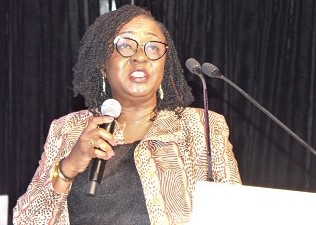
A consultative forum to inform stakeholders on the status of the draft Affirmative Action Bill and government commitment to the process of the passage of the bill into law was been held yesterday in Accra.
Organised by Abantu for Development, a non-governmental organisation in Ghana working to address inequalities and injustices in social relations, in partnership with African Women's Development Fund (AWDF), a first pan-African foundation to support the work of women's rights organisations in Africa, the meeting was also to discuss strategies and plans that would enhance advocacy for the immediate passage of the affirmative action bill into law.
It was held under the theme "Strengthening advocacy for the passage of the Affirmative Action Bill".
Ghana was the first African country after independence to institute a legislated Affirmative Action Act passed in June 1960 which allowed 10 women members unopposed to represent the regions of the country in the then legislature.
The law acceded to the fact that women's political participation was a critical component of democratic dialogue and social cohesion. However, the law was lost under the weight of the political upheavals that occurred in the intervening years in the country according to Abantu's report.
However, speaking on the topic "The status of the affirmative action bill and the way forward", a gender and development consultant, Abantu, Joana Opare called for the speeding up of the processes to facilitate the passage of the Affirmative Action Law in Ghana.
"The government should expedite action on the passage of the Affirmative Action Bill into law to address gender inequality in the country" she said.
Madam Opare explained that research had shown low representation of women at all levels and said that was a violation of their rights and hampers growth of the country.
She observed that the nation was the first African country to initiate Affirmative Action 58 years ago, but still had low representation of women in key areas in governance.
"Women have over the years contributed to the socio- economic development, challenges affecting women including stereotyping, negative cultural practices and violence against women.
"We need to collaborate to ensure the passage of the Affirmative Action law to promote the rights of women" she added.
She noted that it was worrying the draft of the bill was still struggling for passage and appealed to the government to pass the bill into law to fulfil its promise on the Affirmative Action Agenda.
The Special Programmes Manager, AWDF, Madam Abigail Burgesson on her part, said, it was the sole responsibility of her outfit to fund women right organisations in championing courses like these.
"It is our mandate as an organisation to look for resources to support the efforts of organisations like Abantu and other women right organisations who are championing courses to bring equality to help with the recognition of women's right", she said.
Read Full Story






















Facebook
Twitter
Pinterest
Instagram
Google+
YouTube
LinkedIn
RSS